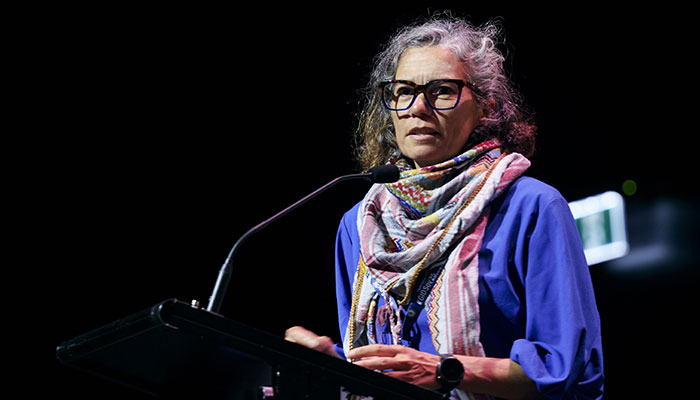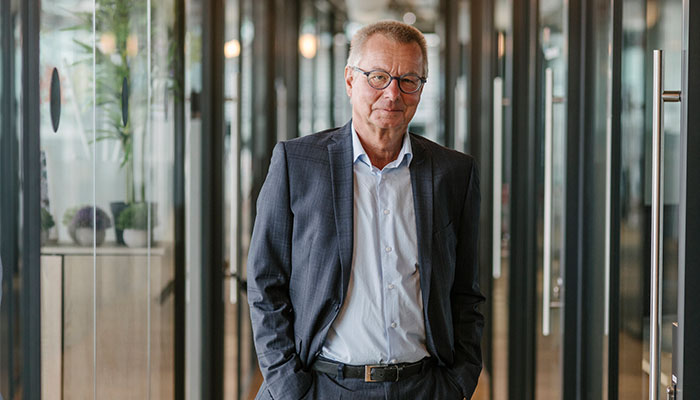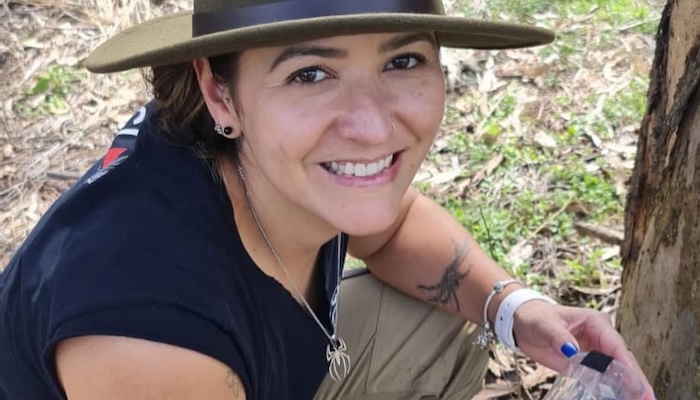Indigenous researchers and educators have called for greater scrutiny of the impact of Artificial Intelligence on Aboriginal and Torres Strait Islander people and culture, calling for the establishment of a coalition to ensure the exploding technology empowers, rather than exploits, Australia’s First Peoples.

Recommendations for the future of AI are published in the Journal of Global Indigeneity and include an analysis of the current impact on Indigenous people’s culture and data sovereignty. This follows a symposium at Macquarie University earlier this year attended by 40 participants.
Data sovereignty means the right of people, communities and organisations to maintain , control, protect, develop and use data as it relates to them, according to the Maiam nayri Wingara Indigenous Data Sovereignty collective.
The symposium participants called for Traditional Owners, young Indigenous leaders, government agencies, lawyers, academics and technology companies, to work together to develop AI systems that support Aboriginal and Torres Strait Islander people’s goals and aspirations.
This “coalition of the willing” would advocate for binding standards, regulations and laws to ensure AI does not misappropriate and misuse Indigenous knowledge and the use of knowledge only with the consent of Indigenous people themselves.
Aboriginal and Torres Strait Islander peoples face unique challenges in the absence of a treaty with the Australian government, says Dr Rose Barrowcliffe, the paper’s lead author and a post-doctoral research fellow in the Centre of Critical Indigenous Studies at Macquarie.
“Every other neo-colonial nation state has some form of treaty or recognition of Indigenous sovereignty and governance,” says Dr Barrowcliffe, a Butchulla person. “Because Australia does not have that, it affects everything but particularly our ability to assert our rights over our own data.”
At the symposium, the researchers and practitioners discussed how currently AI often perpetuates knowledge extraction from Indigenous communities without any benefit going back to them. Dr Barrowcliffe gives the example of asking an AI tool to produce an ‘Aboriginal art work’.
“What it does is produce a homogenised amalgamation of different artwork styles that it's pulling off the internet,” she says.
Aside from potential copyright infringement and mushing the artworks together as if they mean nothing, this is completely culturally inappropriate and also doesn’t recognise the diversity of Indigenous communities and cultures.
She points out that Australia’s hundreds of Indigenous cultures developed according to the geography and climate where their indigeneity is grounded. Each Indigenous artist uses particular patterns and designs to record the unique stories and knowledge of their Country.
While some Aboriginal and Torres Strait Islander communities are suspicious of AI and there are currently not high rates of computer literacy and AI engagement, Dr Barrowcliffe says there are many positive examples of where indigenous communities are already using AI for good.
For example, in the Torres Strait, Salty Monkeys is an Indigenous-owned and run enterprise established by Cairns firefighter Dennis Fay. Salty Monkeys is now using AI and drones to create maps for its beach clean ups, to identify priority places to send in teams of young people to collect discarded plastic fishing nets and other washed up debris.
Other examples include using AI to map rock art sites and invigorate language revitalisation projects.
A ten year vision and coalition
The participants at the symposium agreed on a ten-year vision so Aboriginal and Torres Strait Islander people can be leaders in the design and the development of the AI systems.
“Rather than having technologists who are sitting in San Francisco or Sydney deciding what will be good for Indigenous communities, it has to come from the community to say what problems they want to fix and how AI technology can make more efficient solutions,” Dr Barrowcliffe says.

Lead author: Dr Rose Barrowcliffe, pictured above, is advocating for regulations and laws to ensure AI does not misappropriate and misuse Indigenous knowledge and data.
This would include embedding ethical frameworks in AI systems to ensure Indigenous people give free prior and informed consent before their cultural knowledge is used in AI systems and the hundreds of diverse Aboriginal and Torres Strait Islander peoples, cultures and language and connection to country is respected.
The Communique points towards the need for a road map that would include actions to tackle the digital divide and low rates of technology literacy in Indigenous communities by providing accessible courses in schools, TAFEs, and community centres, with mentoring and scholarships for First Nation students in undergraduate and postgraduate technology courses.
- Indigenous pathway scheme leads to proud 'First in Family' grads
- Scientists condition crocodiles to avoid killer cane toads
Dr Barrowcliffe says this is already beginning to happen. Radiant Life College, for example, is an independent Indigenous high school in Innisfail in Far North Queensland.
“John Fejo from the school spoke at the symposium about how the young Indigenous students are really enjoying coding, programming and learning about AI,” says Dr Barrowcliffe.
But teaching and using AI with Indigenous people must be done with much care, Dr Barrowcliffe cautions, as AI possesses the potential to re-traumatise Indigenous people through harmful biases, racist language, stereotypes and the misappropriation of Indigenous knowledge without correct protocols or permission.
In August, Dr Barrowcliffe will present the symposium’s Communique to PULiiMA, a biennial international Indigenous Language and Technology Conference held in Darwin.
Dr Rose Barrowcliffe is a Research Fellow in the School of Communication, Society and Culture, Faculty of Arts , Macquarie University.



